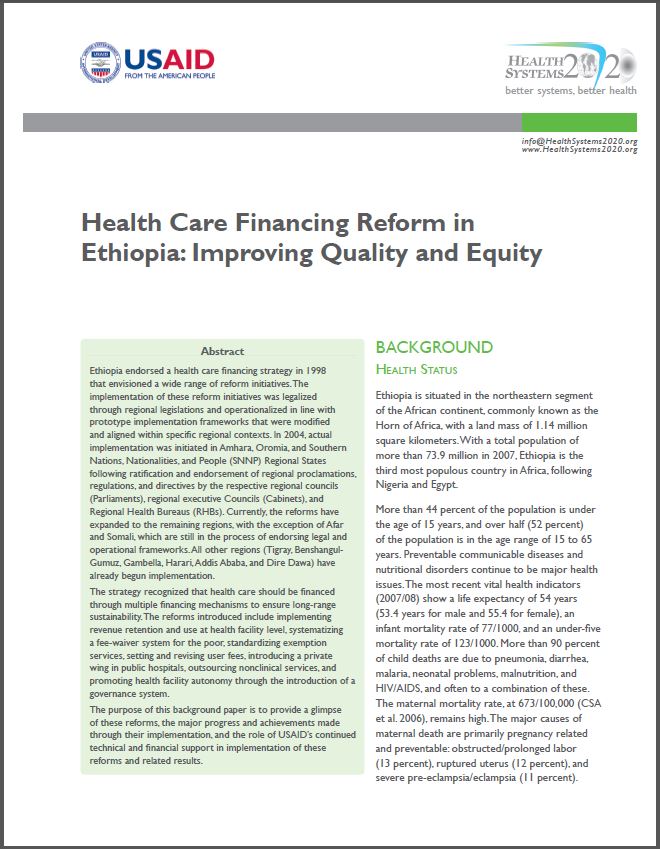Health Care Financing Reform in Ethiopia: Improving Quality and Equity
Categories: Health Finance, Health Insurance (CBHI, SHI), Publications
Resource Type: Case Study
Authors: Hailu Zelelew
Published: 3/1/2012
Resource Description:
 Ethiopia endorsed a health care financing strategy in 1998 that envisioned a wide range of reform initiatives. The implementation of these reform initiatives was legalized through regional legislations and operationalized in line with prototype implementation frameworks that were modified and aligned within specific regional contexts.
Ethiopia endorsed a health care financing strategy in 1998 that envisioned a wide range of reform initiatives. The implementation of these reform initiatives was legalized through regional legislations and operationalized in line with prototype implementation frameworks that were modified and aligned within specific regional contexts.
The strategy recognized that health care should be financed through multiple financing mechanisms to ensure long-range sustainability. The reforms introduced include implementing revenue retention and use at health facility level, systematizing a fee-waiver system for the poor, standardizing exemption services, setting and revising user fees, introducing a private wing in public hospitals, outsourcing nonclinical services, and promoting health facility autonomy through the introduction of a governance system.
The purpose of this background paper is to provide a glimpse of these reforms, the major progress and achievements made through their implementation, and the role of USAID’s continued technical and financial support in implementation of these reforms and related results.
Download Now



